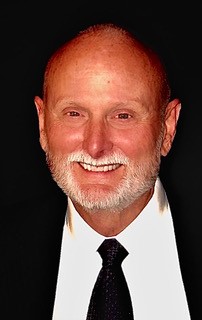Sharing the Life and Legacy of Utah Alumni, Stephen W. Littlejohn
The Department of Communication got news that Department Alumni Stephen W. Littlejohn passed away last week. Please take a moment to read about his life and legacy, one we are proud to play a small part in. We are keeping the Littlejohn and Foss families in our thoughts during this time.
--
 Stephen Ward Littlejohn died on July 4, 2024, in Albuquerque, New Mexico, of a heart
attack at the age of 79. He was born in Los Angeles on September 12, 1944, to Margaret
Brinton Littlejohn and Richard Littlejohn. He grew up in La Habra, California, graduating
from La Habra High School in 1962. He earned a BA in Speech from the University of
Redlands (1966), an MA in Speech from the University of Utah (1968), and a PhD in
Speech Communication from the University of Utah (1970).
Stephen Ward Littlejohn died on July 4, 2024, in Albuquerque, New Mexico, of a heart
attack at the age of 79. He was born in Los Angeles on September 12, 1944, to Margaret
Brinton Littlejohn and Richard Littlejohn. He grew up in La Habra, California, graduating
from La Habra High School in 1962. He earned a BA in Speech from the University of
Redlands (1966), an MA in Speech from the University of Utah (1968), and a PhD in
Speech Communication from the University of Utah (1970).
Communication was the focus of Stephen’s professional career. He was a professor in the Department of Speech Communication at Humboldt State University in Arcata, California (1970–1996), where he also served in a number of administrative positions—chair of the Department of Speech Communication (1977–1980, 1988–1991); chair of the Department of Philosophy (1989–1990); and director of the Division of Interdisciplinary Studies and Special Programs (1980–1984). He also served as a visiting professor in the Department of Communication Studies at the University of Massachusetts, Amherst (1984–1985). After moving to Albuquerque and retiring from Humboldt State, he taught in the Department of Communication & Journalism at the University of New Mexico (1994–2015). Students and colleagues remember him as someone who was kind, genuine, encouraging, and respectful.
Stephen also served as a communication consultant (1993–2010), sharing his expertise outside of the academic setting. With Kathy Isaacson, he formed DLI Communication Consultants, facilitating conflict management, strategic planning, public dialogue, mediation, and leadership processes for clients such as the U.S. Postal Service, the Equal Employment Opportunity Commission, the U.S. Forest Service, Tribal Colleges and Universities, Intel, and Kodak. He also consulted on peace initiatives in Sri Lanka and Indonesia and conducted workshops and trainings in Sweden, Denmark, Finland, Brazil, Argentina, and Colombia. Among the principles that guided Stephen’s work were “people support what they create” and “look for the wisdom in the whining.”
In 1996, Stephen was one of a group of communication professors who created the Public Dialogue Consortium. Based on social construction—the idea that communication creates reality—the PDC was designed to improve the quality of public communication, especially around hot-button issues. The success of the PDC led to the creation of the Communication as Social Construction division in the National Communication Association and the Coordinated Management of Meaning Institute for Personal and Social Evolution, of which Stephen was a founding board member.
Stephen was the author, co-author, or editor of numerous books in the communication discipline. He was best known for his book, Theories of Human Communication, which was the first book in the discipline to provide a comprehensive overview of theories of communication and was the “bible” for many students learning about communication theory. The book is still being published, and his coauthors are currently completing the 13th edition. His other books include Encyclopedia of Communication Theory; Communication, Conflict and the Management of Difference; Facework: Mediation: Empowerment in Conflict Management; Engaging Communication in Conflict; Moral Conflict: When Social Worlds Collide; Elements of Speech Communication; and Persuasive Transactions. He published articles on moral conflict, dialogue, civility, social construction, and communication theory in journals such as Conflict Resolution, Quarterly Journal of Speech, Western Journal of Communication, and Journal of Applied Communication Research. He also served as president of the Western States Communication Association from 1992 to 1993.
Stephen took up various hobbies at different times in his life, including showing dogs, painting with watercolors, hosting a radio show of classical piano, gardening, hiking, photography, and biking. He and his wife Karen loved movies, going as often as three times a week, and in their retirement, they traveled extensively. Stephen particularly enjoyed viewing the northern lights in the Arctic Circle, sailing around Cape Horn, cruising the Mekong River in Vietnam, sipping a Jameson’s while watching the Amazon River glide by, riding bikes to the dikes in the Netherlands, drawing wine from reconfigured gas-station pumps in Italy, and touring murals about the Troubles in Northern Ireland.
After his retirement, Stephen returned to the study of German language and culture that he had begun as an undergraduate. He became fluent in the language, continued to take at least one German class each semester, and spent a month every summer participating in the University of New Mexico’s German Summer School. When asked why he took up German in retirement, he would say, “because it’s better than golfing.”
Survivors include his wife of 45 years, Karen Foss; brother Timothy Littlejohn and his wife Debbie Littlejohn; son Christopher Littlejohn and his wife Crystal Littlejohn; daughter Tonja Littlejohn; sister-in-law Sonja Foss and her husband Anthony Radich; first wife Judy Smith; seven grandchildren; and two great-grandchildren. No formal services are planned.
Donations in remembrance of Stephen may be made to the Stephen W. Littlejohn Endowed Scholarship for the Liberal Arts at the University of Redlands. A gift may be made online at https://www.givecampus.com/campaigns/31789/donations/new. To give online, go to “Gift Designation,” click on “Other,” and fill in the box with “Stephen W. Littlejohn Endowed Scholarship.” Checks should be sent to: University of Redlands, 1200 E. Colton Ave., PO Box 3080, Redlands, CA 92373.
